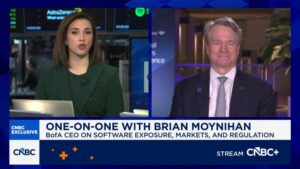The Rolls-Royce (LSE: RR) share price has gone bananas since CEO Tufan Erginbilgic took over. It’s up 525% over two years and 138% over 12 months. No FTSE 100 stock comes close to matching that.
But with a market cap of £47bn and price-to-earnings ratio of 40.2, it’s inevitable that Rolls-Royce shares will slow.
Can this FTSE 100 winner keep flying?
The recovery phase is over, but I still think Rolls-Royce shares remain a brilliant long-term buy-and-hold. On 7 November, it confirmed that full-year 2024 underlying operating profit is on course to hit between £2.1bn and £2.3bn. That’s up from £1.6bn in 2023.
Erginbilgic expects Rolls-Royce to remain “a high-performing, competitive, resilient and growing business”, despite supply chain challenges.
Its main business is making aircraft engines and the real money comes from the maintenance contracts, which are based on miles flown. Rolls-Royce benefitted from a sharp rise in large engine flying hours since the pandemic.
As well as civil aerospace, its defence and power systems divisions are doing well, with robust order intake. Plus it has a major growth opportunity in small module nuclear power plants, with the Czech Republic, Netherlands and Sweden keen.
As with every stock, there are dangers. A tiny technical fault in an aircraft engine could crash the share price overnight. A wider economic shock could hit hours flown and maintenance contract revenues. Yet we live in bumpy times but with a long-term view, I feel omitting Rolls-Royce from my portfolio would be a huge error.
There’s no question of selling my shares and the same goes for my most successful FTSE 100 holding, private equity specialist 3i Group (LSE: III).
Its shares are up an impressive 65.95% over 12 months, trailing Rolls-Royce, but over the longer term they’ve smashed it.
The 3i share price is up 202.34% over five years, against 107.32% for Rolls-Royce, but it’s the 10-year performance that really gets me. In that time, it’s up a massive 773%, against just 86% for Rolls.
3i Group is a hidden winner
Rolls-Royce’s recent stellar figures started from a low base, the shares having crashed 75% first. By contrast, 3i Group didn’t have that dubious advantage. Its shares have been bombing along for a decade.
Private equity can be an up and down business but my colleague Stephen Wright has pointed to one big advantage 3i has. Since 2015, it has only invested its own capital. That means it’s not reliant on inflows from others, which can be highly volatile.
3i Group has a solid track record dating back to 1945 but I do have one worry. Its portfolio is now heavily skewed towards just one holding, European discount retailer Action, which has more than 2,600 stores across 12 European countries.
The value of 3i’s stake has jumped from £106m in 2011 to £14bn today, and it’s received almost £3bn of dividends along the way. Action now makes up a staggering 72% of 3i’s private equity portfolio value. Massive wins like that don’t come along every day.
This heavy reliance on just one company worries me, especially since 3i is now my biggest stock holding. Like Rolls-Royce, 3i may struggle to repeat recent success. But like Rolls-Royce, there’s no way I’m selling.
This post was originally published on Motley Fool







